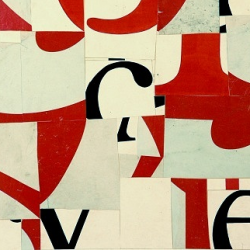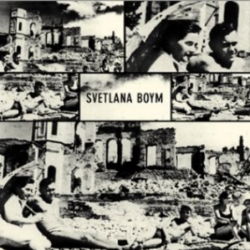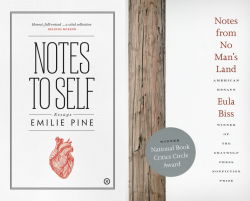Academia can often feel overwhelming, with multiple pressures competing for our time and headspace. This seminar is about remembering why we got into this business in the first place – namely, the ‘love’ (and we can discuss this term) we feel for the books, poems, and ideas that make up our discipline. In this seminar, … Continue reading “Works Loved: How Texts Matter To Us (6 Feb 2019)”
Author: Dorothy Butchard
Dinosaurs, Nostalgia and Popular Culture: Reading Svetlana Boym (16 Jan 2019)
In the first meeting of the new year, we’ll be thinking about dinosaurs and popular culture, continuing our reading from Svetlana Boym’s The Future of Nostalgia (2001).
The Future of Nostalgia: Svetlana Boym (Wed 12 Dec 2018)
This week we are discussing nostalgia, reading the first chapter of Svetlana Boym’s The Future of Nostalgia (2001).
The Work of Genre: Joseph Luzzi (Wed 5 Dec 2018)
This week we will be reading Joseph Luzzi’s discussion of the Work of Genre, where he analyses representations of labour and community in Wordsworth’s poem ‘Michael’ (1800) and Verga’s novel I Malavoglia (The House by the Medlar Tree) (1881).
Into the Archive: Skills for Research
This session will share tips and advice on developing your research via archival visits, with reflections from Dr Emma West, Dr Rona Cran and Dr Fariha Shaikh on using archives for their own research. Time, Date and Location: 12:30-1:30pm, Wed 28 Nov, Alan Walters G11 We will be serving lunch before the start of the … Continue reading “Into the Archive: Skills for Research”
Pressures and Discrimination: Reading Emilie Pine and Eula Biss (Wed 21 November 2018)
On Wednesday 21 November, we will discuss essays from two texts that reflect on pressures and discrimination within and beyond academia: Emilie Pine’s Notes to Self (2018) and Eula Biss’s Notes from No Man’s Land (2009).
Forms: Cultural Studies and Close Reading (Wed 28 Nov 2018)
On Wednesday 28 November, we will read Angus Brown‘s essay “Cultural Studies and Close Reading”. This essay uses a discussion of Caroline Levine’s Forms to explore the relationship between literature and lived experience, meditating, as Levine does, on the question of the distinction ‘between the formal and the social’.




